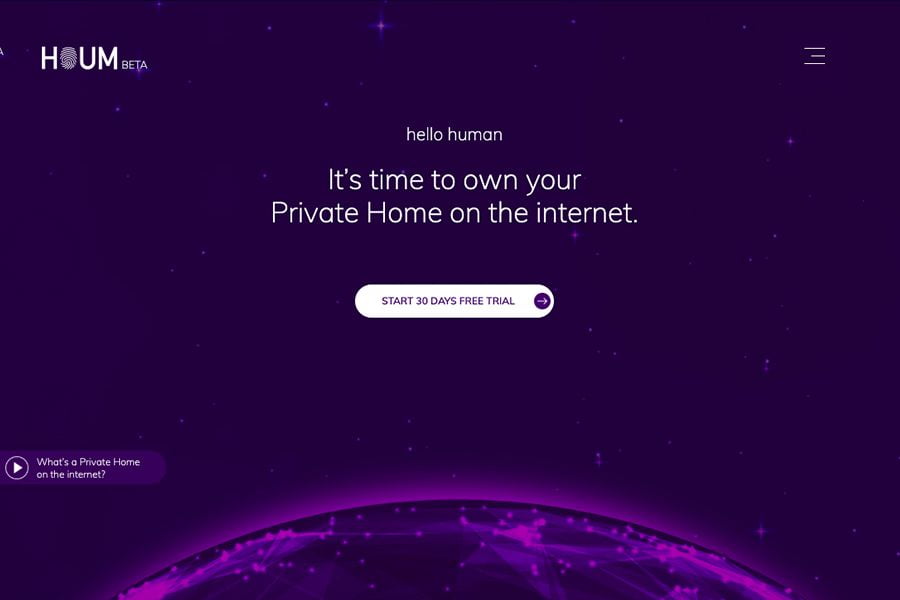
SAN FRANCISCO – On Oct. 29, 1969, professor Leonard Kleinrock and a team at the University of California at Los Angeles got a computer to “talk” to a machine in what is now known as Silicon Valley.
The event gave birth to a network that later became known as the internet — hailed at first as a boon to equality and enlightenment, but also with a dark side that has emerged over time.
As UCLA marks the anniversary, Kleinrock is opening a new lab devoted to all things related to the internet — particularly mitigating some of the unintended consequences of the medium, which is now used by 4 billion people worldwide.
“To some point it democratizes everyone,” Kleinrock said.
“But it is also a perfect formula for the dark side, as we have learned.”
So much is shouted online that moderate voices are drowned out and extreme viewpoints are amplified, spewing hate, misinformation and abuse, he contended.
“As engineers, we were not thinking in terms of nasty behavior,” said Kleinrock, who is now 85.
“I totally missed the social networking side,” Kleinrock added. “I was thinking about people talking to computers or computers talking to computers, not people talking to people.”
The new Connection Lab will welcome research on topics including machine learning, social networking, blockchain and the “internet of things,” with an eye toward thwarting online evils.
Kleinrock expressed particular interest in using blockchain technology to attach reputations to people or things online to provide a gauge of who or what to trust.
For example, someone reading an online restaurant review would be able to see how reliable that author’s previous posts have been.
“It is a network of reputation that is constantly up to date,” Kleinrock said.
“The challenge is how to do that in an ethical and responsible fashion; anonymity is a two-edged sword, of course.”
He blamed many of the internet’s ills on businesses hawking things that are outdated or unneeded, violating the privacy of people in order to increase the company’s profit.
Instead of the clever lone hackers who vexed the internet in its early days, bad actors now include nation-states, organized crime and powerful corporations “doing big, bad things,” Kleinrock lamented.
“We were not the social scientists that we should have been,” Kleinrock said of the internet’s early days.
He regretted a lack of foresight to build into the very foundation of the internet tools for better authenticating users and data files.
“It wouldn’t have avoided the dark side, but it would have ameliorated it,” he said.
He remained optimistic about the internet’s woes being solved with encryption, blockchain or other innovations.
“I do still worry. I think everyone is feeling the impact of this very dark side of the internet that has bubbled up,” Kleinrock said.
“I still feel that the benefits are far more significant; I wouldn’t turn off the internet if I could.”
In the early days, the U.S. telecommunications colossus AT&T ran the lines connecting the computers for the Advanced Research Projects Agency Network (ARPANET) in a project backed with money from a research arm of the U.S. military.
A key to getting computers to exchange data was breaking digitized information into packets fired between machines with no wasting of time, according to Kleinrock.
A grad student began typing “login” to log in to the distant computer, which crashed after getting the “o.”
“So the first message was ‘lo’ as in ‘Lo and behold,’” Kleinrock recounted. “We couldn’t have a better, more succinct first message.”
Kleinrock’s team logged in on the second try, sending digital data packets between computers on the ARPANET because funding came from the research agency, which had been established in 1958.
Credit for creating the internet is a topic of debate, since there are a series of key moments in its evolution, including arrival of protocols for how data is routed and creation of the World Wide Web system of online pages.
The name “internet” is a shortening of the “internetworking” allowed when one computer network could collaborate with another, according to Marc Weber, curatorial director at the Computer History Museum in Silicon Valley.
“The billion-dollar question is, what kind of beast has the internet become?” Weber asked. “It has become the default main way for humans to communicate, and that is not small.”
While marking its 50th anniversary, the internet as we know it is a “rowdy teenager” in the eyes of Internet Society chief technology officer Olaf Kolkman.
“The internet has done more good than harm,” Kolkman said.
“The biggest challenge we have in front of us is that while we cope with big problems enabled by global connectivity that we don’t throw the baby out with the bath water.”
[“source=japantimes”]







 Amber Bouman
Amber Bouman
 The Internet has largely changed everything, from our lifestyle to our social interactions to even the way we think.If you could tell a 20th-century layman that you can talk to people in any corner of the world instantly over a video call, they would hardly believe you.Internet became popular in the 1980s, become accessible to the masses in the 1990s, and the early global tech innovations started in early 2000s led by Google, Facebook and other such global technology innovations. The originality of their ideology is what makes them special and massively adopted by millions of internet users. But even the most recent of these innovations are now more than a decade old, including the new entrants such as Uber, Airbnb and Bitcoin that came in the decade 2000 to 2010. And a common factor that we often notice amongst most of these global innovations is that they all came from the Western nations.Doesn’t it make you wonder why? After all, it is no secret that every big company contains a large population of employees from the east.Given that no globally disruptive technology innovation has happened in nearly a decade long period, it’s high time that such a disruptive innovation comes about now; something that has the ability to impact the world positively. It is also quite logical that this technology comes from the East now, combining the best of the geniuses in the East with the experiences the world has had from the West. Moreover, as there is yin, there is yang.As much as the internet has benefited the world, it also has made some wrongs. Though it has become easy to access any information now, the privacy and security of millions of people on the internet are always at stake of being lost, stolen or misused in one way or another.The solution to this grave, present and ever-growing problem comes in the form of an innovative consumer product by a company, headquartered in Singapore with significant Indian presence.This company is Houm. Click here to know more about Houm Houm lets you own a personal private place on the internet, which you can use to store all your digital assets. You can link it with all your storage & social media accounts to ensure that your data is secured and owned by you.To understand how Houm solves the problem of digital freedom is quite interesting. Houm aims to reconstitute the ownership structure of the internet. The recent ownership structure of the internet is in an alarming state, where most of the power is consolidated in only a few hands. What this technically means is that the space you use on the internet is someone else’s, and the security of your data is at the company’s mercy that owns it.Around 99% of all the data on the internet is today owned by only the top 5 global internet companies. Owning such great data grants them the power to affect major global events including the 2016 US Presidential elections and Brexit. They have a great influence over communities across the world and areoften responsible for manipulation. What makes this scenario even scarier is the fact that these are all for-profit companies with the fiduciary responsibility to increase shareholder value. This means that they are manipulating the mass, just for their own benefit.This is a wrong that needs to be righted soon, and Houm is doing precisely that.Click here to watch the videoThe breakthrough thought behind this consumer internet product is so powerful yet simple that it can be summarized in just three lines:
The Internet has largely changed everything, from our lifestyle to our social interactions to even the way we think.If you could tell a 20th-century layman that you can talk to people in any corner of the world instantly over a video call, they would hardly believe you.Internet became popular in the 1980s, become accessible to the masses in the 1990s, and the early global tech innovations started in early 2000s led by Google, Facebook and other such global technology innovations. The originality of their ideology is what makes them special and massively adopted by millions of internet users. But even the most recent of these innovations are now more than a decade old, including the new entrants such as Uber, Airbnb and Bitcoin that came in the decade 2000 to 2010. And a common factor that we often notice amongst most of these global innovations is that they all came from the Western nations.Doesn’t it make you wonder why? After all, it is no secret that every big company contains a large population of employees from the east.Given that no globally disruptive technology innovation has happened in nearly a decade long period, it’s high time that such a disruptive innovation comes about now; something that has the ability to impact the world positively. It is also quite logical that this technology comes from the East now, combining the best of the geniuses in the East with the experiences the world has had from the West. Moreover, as there is yin, there is yang.As much as the internet has benefited the world, it also has made some wrongs. Though it has become easy to access any information now, the privacy and security of millions of people on the internet are always at stake of being lost, stolen or misused in one way or another.The solution to this grave, present and ever-growing problem comes in the form of an innovative consumer product by a company, headquartered in Singapore with significant Indian presence.This company is Houm. Click here to know more about Houm Houm lets you own a personal private place on the internet, which you can use to store all your digital assets. You can link it with all your storage & social media accounts to ensure that your data is secured and owned by you.To understand how Houm solves the problem of digital freedom is quite interesting. Houm aims to reconstitute the ownership structure of the internet. The recent ownership structure of the internet is in an alarming state, where most of the power is consolidated in only a few hands. What this technically means is that the space you use on the internet is someone else’s, and the security of your data is at the company’s mercy that owns it.Around 99% of all the data on the internet is today owned by only the top 5 global internet companies. Owning such great data grants them the power to affect major global events including the 2016 US Presidential elections and Brexit. They have a great influence over communities across the world and areoften responsible for manipulation. What makes this scenario even scarier is the fact that these are all for-profit companies with the fiduciary responsibility to increase shareholder value. This means that they are manipulating the mass, just for their own benefit.This is a wrong that needs to be righted soon, and Houm is doing precisely that.Click here to watch the videoThe breakthrough thought behind this consumer internet product is so powerful yet simple that it can be summarized in just three lines:










 With Reliance Jio introducing its JioFiber service, we are witnessing a similar trend in the industry that happened a couple of years ago with the arrival Jio mobile network services. Almost every player is introducing offers left right and center to counter JioFiber, which has become a major threat.
With Reliance Jio introducing its JioFiber service, we are witnessing a similar trend in the industry that happened a couple of years ago with the arrival Jio mobile network services. Almost every player is introducing offers left right and center to counter JioFiber, which has become a major threat.